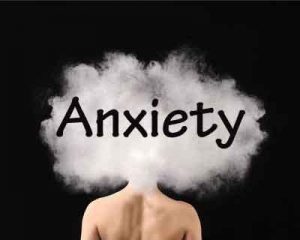- Home
- Editorial
- News
- Practice Guidelines
- Anesthesiology Guidelines
- Cancer Guidelines
- Cardiac Sciences Guidelines
- Critical Care Guidelines
- Dentistry Guidelines
- Dermatology Guidelines
- Diabetes and Endo Guidelines
- Diagnostics Guidelines
- ENT Guidelines
- Featured Practice Guidelines
- Gastroenterology Guidelines
- Geriatrics Guidelines
- Medicine Guidelines
- Nephrology Guidelines
- Neurosciences Guidelines
- Obs and Gynae Guidelines
- Ophthalmology Guidelines
- Orthopaedics Guidelines
- Paediatrics Guidelines
- Psychiatry Guidelines
- Pulmonology Guidelines
- Radiology Guidelines
- Surgery Guidelines
- Urology Guidelines
Magic therapy program helps reduce anxiety among pediatric patients and caregivers

It is usual for pediatric patients to experience stress and fears upon hospitalization. A new study of pediatric patients at Stony Brook Children’s Hospital has revealed that a program called MagicAid helps significantly reduce both patient and caregiver anxiety by about 25%. The findings suggest that a magic therapy program for pediatric inpatient care may have great value to patients and caregivers while hospitalized and should be considered to be implemented in this setting.The study has been published in Hospital Pediatrics.
MagicAid magic therapy is an interactive therapy that uses magic tricks and magic sessions designed to alleviate patient anxiety. MagicAid is a non-profit organization co-founded by Harrison Pravder, a fourth-year medical student at the Renaissance School of Medicine at Stony Brook University. The program is run at Stony Brook Children’s under the guidance of professionals in the Child Life Program.
“It is important to develop tools to facilitate coping and encourage distraction for patients due to anxieties associated with hospitalization,” said Pravder. “Anxiety often arises due to loss of self-determination and separation from home and family in patients, while, for parents, stress is often related to their child’s hospitalization and other concerns such as financial costs, and this stress can translate back to the child.”
Pravder and his colleagues found a majority of patients and parents to be receptive to magic therapy and willing to participate. They evaluated 100 inpatients ages 5 to 16 years and 90 caregivers at Stony Brook Children’s. Patient-caregiver pairs were randomly assigned to a magic therapy intervention group or control group. The magic therapy included a session of watching magic, learning how to perform a magic trick and receiving a magic prop to practice in order to perform for others.
Anxiety was measured before and after the magic interventions by using validated self-report tools. These included a facial image scale and the venham picture test for younger patients and for older children a pictoral scale and a written scale signifying anxiety levels. Caregivers’ anxiety level was evaluated using only the written linear scale, called the short State-Trait Anxiety Inventory (STAI).
After analyzing the results, they found that the patient magic group’s standard anxiety was reduced by 25% after the magic therapy, and the caregiver magic group’s anxiety was reduced by 24%.
Part of the study included a questionnaire for health professionals designed to assess the usefulness of magic reducing anxiety and the feasibility of such a program in a healthcare setting. Based on the results of 37 physicians and nurses surveyed at Stony Brook on the topic, 98% recommended continuance of the program, 97% reported that the student magicians were not a disturbance in the healthcare setting, 81% reported that the activity is helpful to the child, and 57% reported it as helpful to parents.

Disclaimer: This site is primarily intended for healthcare professionals. Any content/information on this website does not replace the advice of medical and/or health professionals and should not be construed as medical/diagnostic advice/endorsement or prescription. Use of this site is subject to our terms of use, privacy policy, advertisement policy. © 2020 Minerva Medical Treatment Pvt Ltd